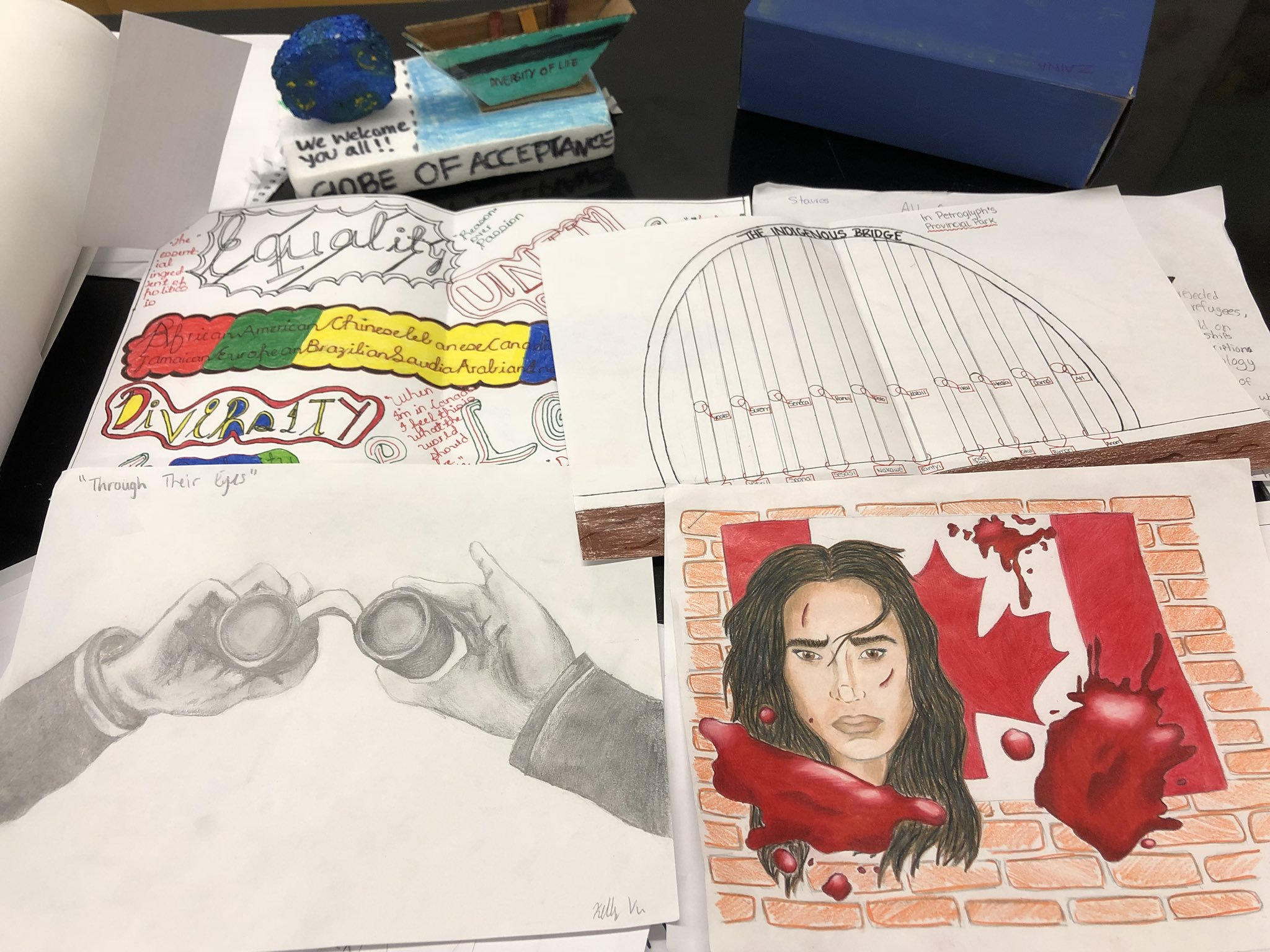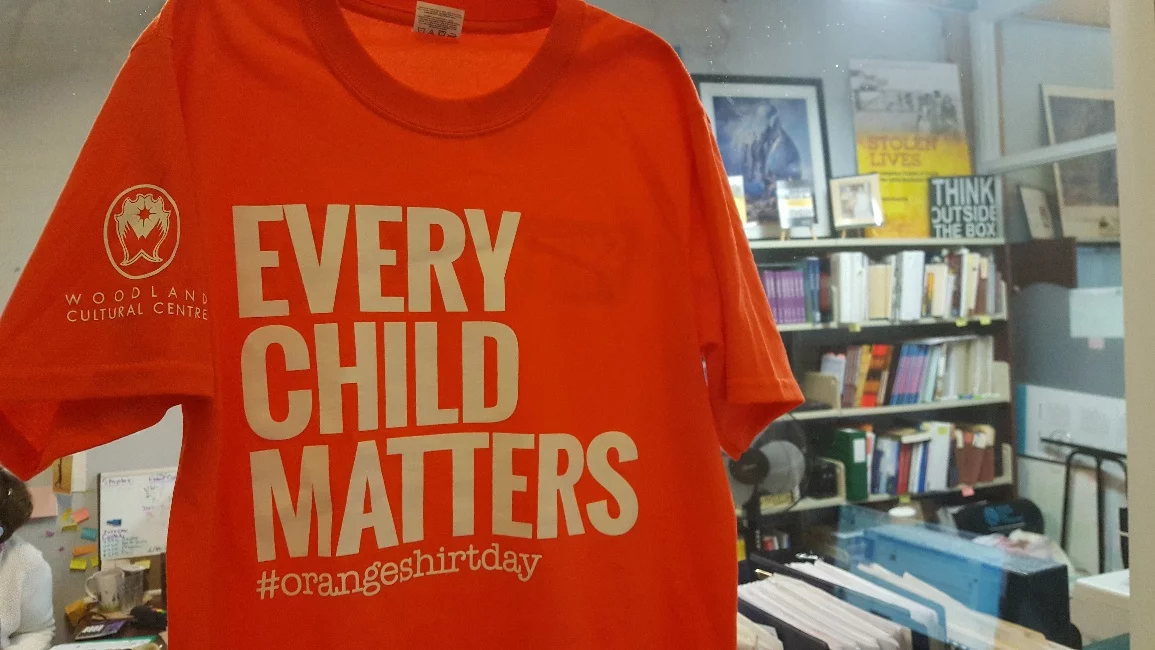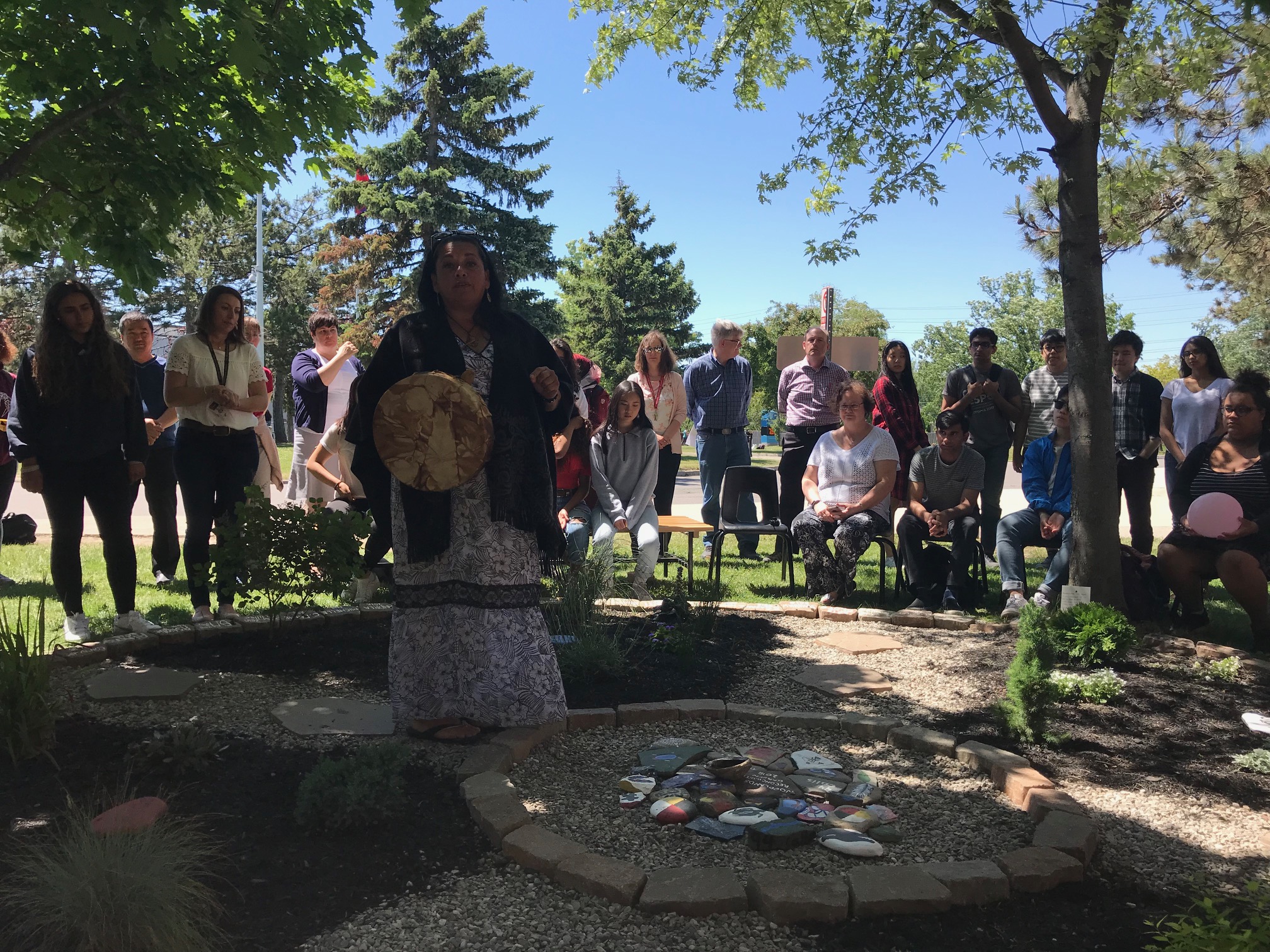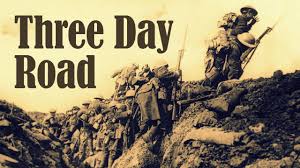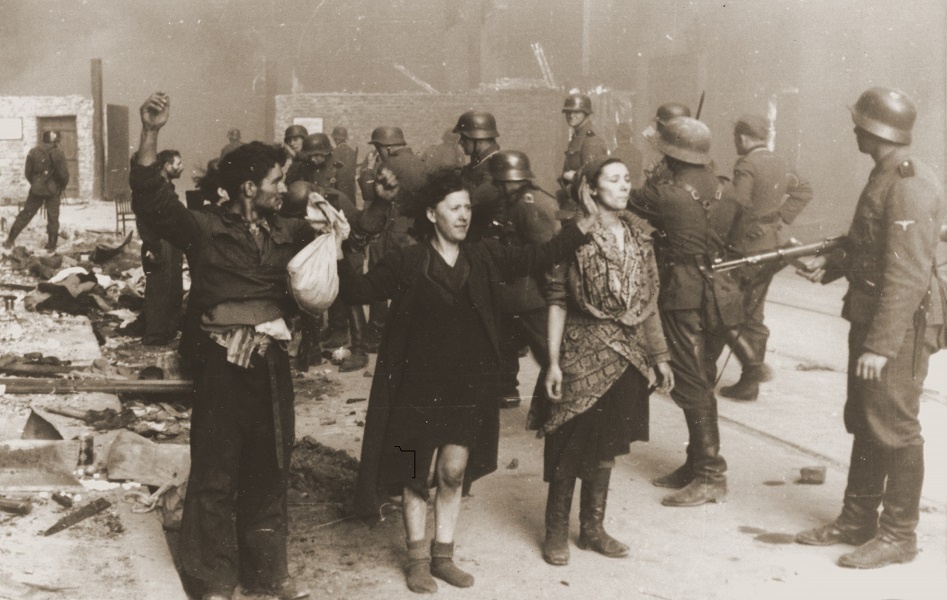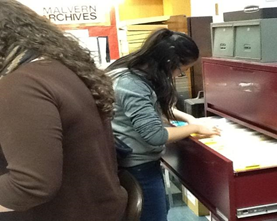This video is the first part in a four part webinar series featuring Jasmine Wong in conversation with Lorrie Gallant.
This series of blog posts explores stories and teachings that Lorrie Gallant shares about the purpose and importance of territorial acknowledgments and treaties. They are based on a recorded webinar from March 18 2020. Lorrie is a writer, illustrator, storyteller, visual artist, educator, Expressive Arts Practitioner, born and raised on Six Nations of the Grand River Territory in Ontario.
These posts and activities have been written for students to explore as part of a virtual learning community.
Read More
Topics:
Identity,
History,
Canadian History,
Indigenous History,
Indigenous,
Grade 10 History,
stolen lives,
Facing Canada,
land acknowledgements,
territorial acknowledgement
It can be difficult to discuss current events in your classroom, especially if you feel as though you are not an expert on the topic. Leah Mauer, a Toronto District School Board educator, takes us through her thought process mid-January as she decides to overcome her discomfort and confront her students' fears and questions about 'World War III'.
Read More
Topics:
American History,
current events,
Grade 10 History,
Growth mindset,
Contemporary Issues
This spring, Facing History and Ourselves, in partnership with the Azrieli Foundation Holocaust Survivors Memoir Program, invited 175 students from 6 schools to layer onto their learning about the history and legacies of the Holocaust, or of Canada's Residential Schools by reading Survivor memoir. Students read Theodore Fontaine’s Memoir Broken Circle: The Dark Legacy of Indian Residential Schools, or excerpts of Nate Leipciger’s Memoir The Weight of Freedom, then created pieces that reflected their understanding and responses to these testimonies, which were gifted to each Survivor.
Read More
Topics:
Toronto,
Holocaust,
Memoir,
Facing History and Ourselves,
Survivor Testimony,
Canada,
Residential Schools,
Canadian History,
Student Work,
project,
genocide,
Holocaust and Human Behaviour,
reflection,
Connected Learning,
Grade 10 History,
HSB,
CHC,
difficult conversations,
trc,
stolen lives,
facing history pedagogy,
Azrieli Foundation Memoirs,
Decolonizing Schools,
Holocaust History in Canada,
Facing Canada,
cross curricular teaching and learning,
collaborative inquiry
Why is studying history relevant?
Canada Day, Independence Day, Bastille Day. Theses are days of celebration. People gather, wave flags, watch fireworks, and enjoy a long weekend in celebration. But what exactly are these days in celebration of? Why do we mark particular days with significance? Are these days equally as important for all people? Why do we honour the people we do? Are these people significant for all groups and generations? Can we change the way we remember individuals or honour new ones in light of new information?
Read More
Topics:
Student Voices,
Holocaust Education,
Memorial,
Student Work,
legacy,
Grade 10 History,
CHC,
Black History,
Decolonizing Schools,
culminating
Join us as we have a conversation with Lorrie Gallant, the Education Program Coordinator for the Woodland Cultural Centre (formerly the Mohawk Institute Residential School) about how survivors experience Orange Shirt Day, and what true engagement on this day can look like from education and beyond.
This
interactive online video conversation is intended for Facing History and Ourselves educators to listen, to learn, and to share ideas and questions.
Date: Monday, Sep 24th.
Time: 3:30 - 4:15 PM EST
To join from your computer, tablet or phone, go to
https://facinghistory.zoom.us/j/668270809 (you will need to download a Zoom app or program so give yourself 2 minutes to do so)
Or Dial in by phone: +1 647 558 0588
Meeting ID: 668 270 809
No RSVP is required.
We hope you can all join us!
Read More
Topics:
Culturally Responsive and Relevant Pedagogy,
Community Event,
Grade 10 History,
CHC,
trc,
stolen lives,
settler educators,
Equity in Education,
Decolonizing Schools,
Orange Shirt Day
In spring of 2017, five high schools from across the GTA participated in “Decolonizing Schools Together,” a project started by Facing History and Ourselves’ Canadian office in consultation with Traditional Ojibway Grandmother, Kim Wheatley, Shkoden Neegan Waawaaskonen,of Shawanaga First Nation. Recently, we spoke to Kim and to the teachers who supported students through the Decolonizing Schools Together Project to share their reflections and progress.
Read More
Topics:
Grade 10 History,
HSB,
CHC,
trc,
stolen lives,
settler educators,
Equity in Education,
Decolonizing Schools
In my grade 10 Canadian history class, I often used excerpts from Joseph Boyden’s Three Day Road to explore what life was like for soldiers during WWI. In this novel, protagonist Xavier Bird returns to Northern Ontario in 1919 after fighting in France and Belgium. He is met by his aunt Niska, an Oji-Cree woman, and the two travel back to their village. On this journey, the two recount traumatic experiences from their past - Xavier as a soldier returning from the front and Niska as a survivor of residential schools.
Read More
Topics:
Canada,
Canadian History,
Truth and Reconciliation,
Indigenous History,
Book,
Indigenous,
English Classroom,
big paper,
English,
Grade 10 History,
CHC,
difficult conversations,
trc,
stolen lives,
settler educators
A collaboration between Facing History and Ourselves and the Azrieli Foundation's Holocaust Survivor Memoirs Program, first posted on Azrieli Memoirs' Blog page.
Words referencing mass atrocities of the past, such as fascist, racist, Nazi, genocide and Holocaust, carry deep historical meaning, yet these words are often misused in reference to contemporary events. Using these words too casually not only diminishes the meaning of the words themselves, but also diminishes the events that the words represent. In this blog post, we look to remember the meaning of the term genocide and the conditions that drove a lawyer named Raphael Lemkin to coin this term to describe a horrific crime — a crime that prior to 1944 lacked a name and legal repercussions.
Read More
Topics:
Survivor Testimony,
genocide,
Genocide and Crimes Against Humanities Course,
Holocaust and Human Behaviour,
Grade 10 History,
Azrieli Foundation Memoirs
On January 27 - the anniversary of the liberation of Auschwitz-Birkenau - the United Nations General Assembly and its member states commemorate International Holocaust Remembrance Day. On this day, (indeed every day) we remember the victims of the Holocaust and remind ourselves of the importance of teaching and learning about the Holocaust for the prevention of future genocides. Here are few blog posts that highlight a variety of approaches to teaching this important history. We hope these will inspire and assist you as you prepare for this day of remembrance and learning.
Read More
Topics:
Holocaust,
Holocaust Education,
Middle School,
Holocaust and Human Behaviour,
Inquiry,
Grade 10 History,
HSB,
CHC,
Anne Frank,
international holocaust remembrance day
Ever since I realized Malvern had their own archives, I have wanted to figure out how to use them in my Grade 10 Canadian History class(es). The “how” was key because I wanted to make the learning and use of archives authentic and also provide learning to meet curriculum expectations at the same time.
Read More
Topics:
Critical Thinking,
Inquiry,
Grade 10 History

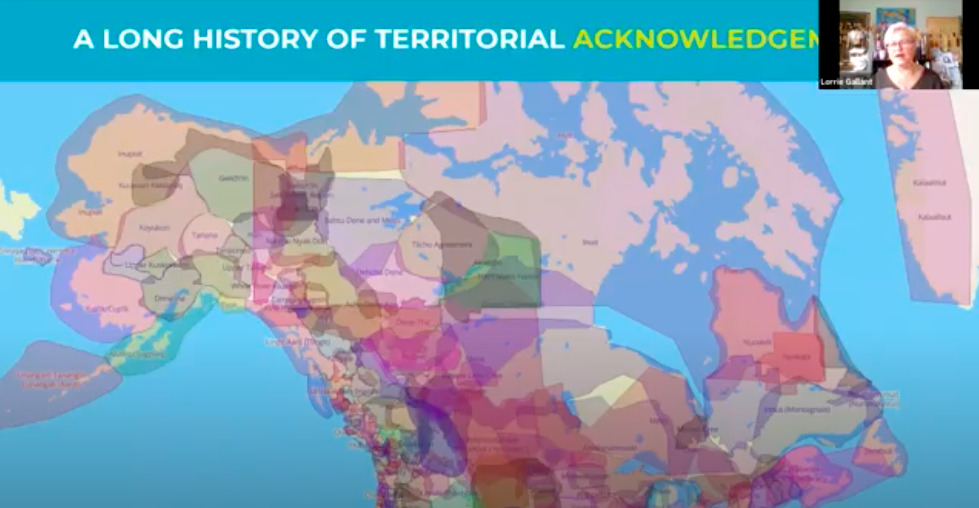
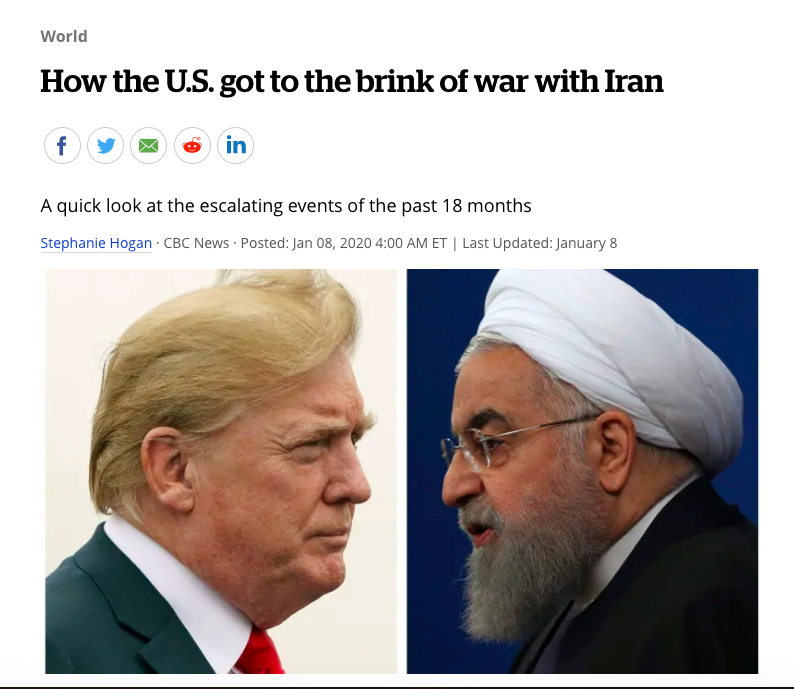
.jpeg)
